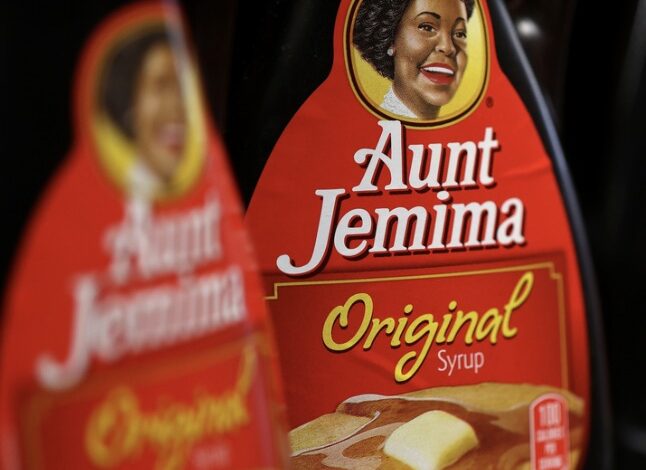Aunt Jemima’ Brand Faces Backlash Over New Name

Aunt Jemima’s recent rebranding to Pearl Milling Company has ignited a firestorm of criticism across social media platforms and beyond. What was intended as a progressive move to shed the racially charged connotations of the old brand has instead triggered a wave of discontent among consumers.
ADVERTISEMENT
Twitter, as a hub for real-time reactions, served as the battleground for much of this backlash. Users took to the platform to express their disdain, with many likening the new name to that of a “gravel mining company” or the creation of a “James Bond villain.” Such comparisons not only highlight the perceived lack of creativity in the rebranding effort but also underscore the disconnect between the new name and the product it represents.
ADVERTISEMENT
Twitter Users’ Reactions to the Name Change
The Twitterverse erupted with a flurry of tweets following the announcement of Aunt Jemima’s transformation into Pearl Milling Company. Users expressed a range of emotions, from incredulity to outright rejection. Some went as far as to threaten a switch to rival brands such as Mrs. Butterworth’s or Log Cabin, citing their dissatisfaction with the new moniker.
ADVERTISEMENT
“I think it sounds like a gravel mining company,” quipped one user, encapsulating the sentiments of many who found the name uninspiring and out of touch with the product’s identity.
Reasons for the Backlash
The backlash against Pearl Milling Company stems not only from its perceived lack of resonance but also from a deeper sense of betrayal among loyal consumers. Aunt Jemima, despite its problematic origins, held a nostalgic place in many households. The abrupt rebranding felt like a jarring departure from tradition, leaving consumers feeling alienated and disenchanted.
Furthermore, comparisons to competing brands served to underscore the missed opportunity for Aunt Jemima to differentiate itself in a crowded market. While Mrs. Butterworth’s and Log Cabin may offer viable alternatives, the fervor surrounding their newfound popularity speaks volumes about the misstep in Aunt Jemima’s rebranding strategy.
Boycott Calls and Consumer Sentiment
In the wake of the name change, calls for a boycott of Pearl Milling Company products have gained traction among dissatisfied consumers. The decision to abandon a brand that was once a staple in their homes reflects not only a rejection of the new name but also a broader indictment of the company’s handling of the rebranding process.
“I would never recognize it and will probably go to Log Cabin,” lamented one disillusioned consumer, echoing the sentiments of many who feel alienated by the brand’s disregard for its heritage and consumer loyalty.
Origins of Aunt Jemima and the Logo
To understand the significance of the backlash against Pearl Milling Company, one must delve into the origins of Aunt Jemima and the controversial imagery associated with it. The character, based on the 19th-century “mammy” minstrel archetype, perpetuated harmful stereotypes of African American women as subservient and docile.
The decision to retire Aunt Jemima in favor of a more inclusive brand image was a step in the right direction. However, the choice of Pearl Milling Company as the new name has reignited debates about cultural sensitivity and corporate responsibility.
Historical Significance of Pearl Milling Company
While the name Pearl Milling Company may seem arbitrary to some, its historical significance cannot be understated. Originating from a small Missouri mill in 1889, Pearl Milling Company played a pivotal role in the creation of Aunt Jemima pancake mix, a household staple for over a century.
By reclaiming its original identity, the brand seeks to honor its legacy while charting a new course forward. However, the backlash against the new name serves as a stark reminder of the challenges inherent in rebranding efforts, particularly when navigating issues of race and identity.




